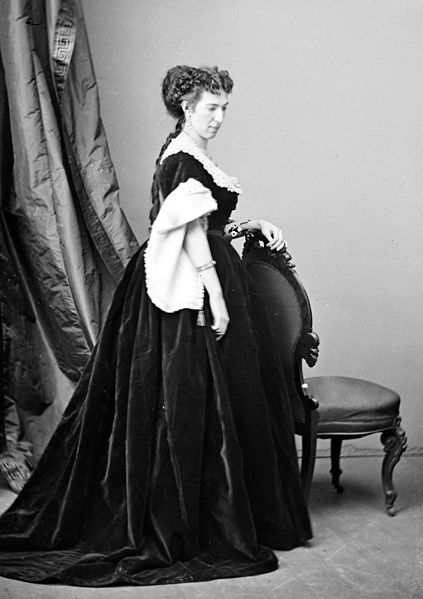

Why was Loreta Velasquez’s name mentioned during the Lincoln Assassination trials?
In October 1865, a man named Sandford Conover wrote to the chief prosecutor during the Lincoln assassination trial, stating that he had uncovered a Jefferson Davis-approved plot to poison President Lincoln. The plan would have had the “she-wolf” who had posed as Lieutenant Buford, none other than Loreta Velasquez herself, actually deliver the poison.
Sandford Conover was one of the many aliases of Charles Dunham, the dubious journalist who sparked the Confederate prison plot featured in Underground: Traitors and Spies in Lincoln’s War. When Loreta first met Dunham in Castle Thunder, he was introduced as Harvey Birch, a name perhaps purposely mimicking that of the main character in James Fenimore Cooper’s American Revolution novel, The Spy. Dunham also occasionally went by James Watson Wallace, Franklin Foster, Isaac Haines (or Haynes), Henry Wolfenden, W.E. Harrison, George W. Margrave, John McGill and many other aliases. Of course, Loreta was going by the alias Alice Williams at the time, so while they were acquainted, it wasn’t an intimate enough relationship for them to reveal their real names.
As the Civil War was in its early stages, Dunham was unsuccessful in an effort to raise a Union regiment. He then traveled to Richmond, where he offered to try to do the same for the Confederate Army. Understandably, the Richmond authorities imprisoned him for a brief period. After his release, Dunham traveled to New York, where he began his less than illustrious journalism career. He became acquaintances with Confederate refugees in Canada, and began writing articles warning of possible plots to free Southern prisoners. In his Harvey Birch column, published by the New York Herald in September 1863, he wrote that he had “left Washington on the 19th of March last for the purpose of invading the “sacred soil” to a point near Mason and Dixon’s line. The object of my journey being of no concern to anybody, I need not take time to disclose.” After crossing Ashby’s gap, he was captured by Mosby’s raiders, who accused him of being a Yankee spy. He seemed to switch sides as often as he switched names.
According to Dunham, Loreta remained a lodger at Castle Thunder after she was released by Winder, supposedly because she had a free room. He relayed that Loreta was “boarding, drinking, gambling, and carousing with Capt. Alexander and other officers.” Dunham claimed that Loreta was eventually sent North on a truce boat and that, before she left, she expressed hope that he would soon be released so that they could meet in Baltimore.
After Lincoln was assassinated, Dunham was called to testify as a witness. He spoke first of a conspiracy headed by former Confederate President Jefferson Davis, for which he gave no solid evidence. Dunham then wrote an article under one of his pseudonyms to discredit his own charges, for reasons unknown but possibly because he, like Loreta, would pursue infamy at whatever cost. He then switched to another story, at which point the judge got tired of his antics. Accused of perjury, he was thrown in jail. Soon he was conspiring again, this time with fellow prisoners, Benjamin F. Butler (of no relation to General “Beast” Butler) and another man to declare that the Lincoln plot had actually been headed by President Andrew Johnson.
Where was Loreta during the spring of 1865 when she was supposedly plotting to kill the President? True to form, she told several different stories, some of them contradictory. In 1866, she claimed that she was in New York, preparing to leave for Europe. In her autobiography, The Woman in Battle, published in 1876, she wrote that she was in Columbus, Ohio, at the Neil House, having “conferences with several persons concerning the affairs” of the South when she found out that Lincoln had been assassinated. Loreta stated that “Mr. Lincoln was the enemy of the cause I loved, and for which I labored and it would have been intensely repugnant to my feelings to have made any outward manifestations of mourning.” Wherever she was, it seems she probably had nothing to do with Lincoln’s actual assassination, despite Dunham/Conover’s accusations.
